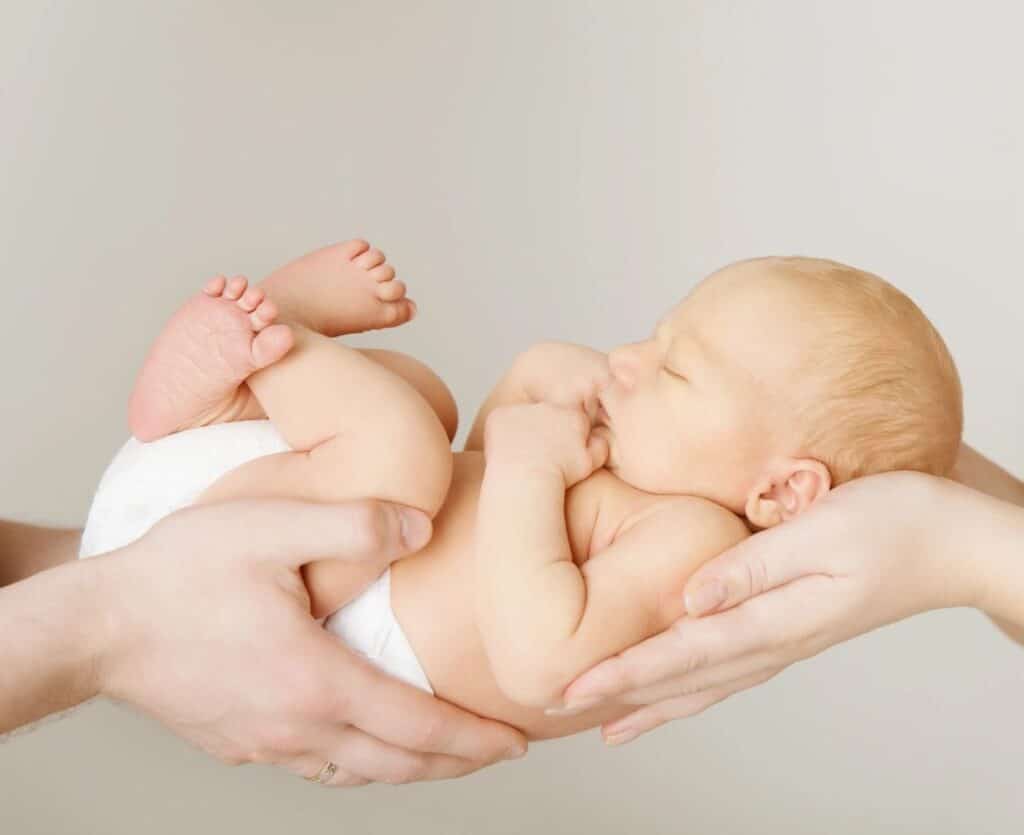Louise Lotty is a mama to two little boys as well as a GentleBirth hypnobirthing instructor, postpartum doula and founder of Luna Birth Services. Louise has used hypnobirthing in both of her very different birth experiences with great success. She is passionate about supporting women and their partners towards an empowering and positive birth and early parenting experience.

Are you expecting a baby? Are you nervous about birthing in the midst of a global pandemic? For many women the thought of birth can trigger a lot of anxiety and apprehension, even fear, and often these thoughts have been planted by imagery, which we are all so accustomed to seeing, hearing and reading in society.
However, birth need not be the ordeal that so many of us expect. Yes, it will likely be the hardest work you will ever do but this work can be a really positive experience for both you and your birth partner.
Toward the middle of your pregnancy is the ideal time to start thinking about your labour and birth. Whether you are planning a natural un-medicated, caesarean section, induction, medicated, hospital or home birth – you define your own positive birth experience.
Hypnobirthing involves a range of techniques, which support the mind and body in preparing for birth. Science has shown that our brains are flexible, meaning that they have plasticity to rewire toward a positive image of birth and to overcome any situation which pregnancy and labour may present. Hypnobirthing uses brain science, mindfulness, and affirmations – amongst other tools – to help you to relax, allay fears or anxieties and even look forward to birth. Apps such as GentleBirth are tailored to your individual stage of pregnancy. In order to get the most benefit, short daily sessions listening to hypnobirthing tracks are advised in preparation for using the app during labour. This is a great way to wind down, connect with baby and disconnect from the outside world.
Attending an independent childbirth education class is invaluable in pregnancy. I provide private in-person workshops, which are small in size in order to comply with COVID-19 safety measures and also to ensure an intimate, engaging and interactive workshop. These workshops cover the importance of the brain in labour, stages of labour, the importance of hormones for birth, birth preferences, natural comfort measures (if you would like to have an epidural, there are potentially a number of hours of labour before this can be administered), birth positions, breathing techniques and recovery tips as well as many more topics.
Writing birth preferences is highly recommended. Completing your own research after attending a childbirth education class can really help you to think about what you and your partner would hope for in the birth of your child. We cannot plan everything (babies don’t read plans!) and birth is unpredictable but in the majority of low risk and healthy women, birth is a very straightforward and uncomplicated journey, which you and your baby will go through together. Birth preferences such as requesting immediate skin to skin with baby post-birth can have a hugely beneficial impact on both mother and baby. Continuing skin to skin contact with baby in the postnatal ward and at home will help to reduce stress, increase bonding and encourage breastfeeding. Did you know that around 30 per cent of your baby’s blood volume remains in the umbilical cord at birth? Requesting delayed cord clamping in your birth preferences can increase baby’s haemoglobin levels and increase iron stores for the first few months in life.
If you are having a hospital birth, it is highly recommended to stay at home for as long as possible in early labour, particularly in the pandemic due to restrictions on partners’ access to hospitals. Think about how to prepare your home to feel comfortable during early labour. It’s not all about the nesting instinct of cleaning the cupboards and purging clutter! Consider how all mammals go somewhere dark, private and safe to birth. Create an atmosphere of safety, warmth, comfort using dim lighting – perhaps candles – a special playlist, your favourite show on TV, warm water immersion in the shower or bath (one of the best pain relievers for labour!), soothing smells though aromatherapy oils, using a TENS machine, birth ball or the touch of your partner through massage or holding a cold facecloth on your neck. These tools are important to raise the hormone oxytocin in your body. Also called the ‘love hormone’, this is crucial in lowering anxiety, stress and pain as well as stimulating effective contractions. Stay in contact with the maternity hospital for advice on when to start travelling in and ideally, by the time you arrive at the hospital you will be in active labour and your partner will be able to join you on the labour ward for the birth of your baby immediately. Bring your TENS Machine in the car for extra support during the journey.
Birth need not be something to fear. A little forward preparation rather than ‘winging it’ will go a long way toward your birth being a positive and wonderful once in a lifetime experience.
If you would like to learn more, you can visit Louise’s website at lunabirthservices.ie


